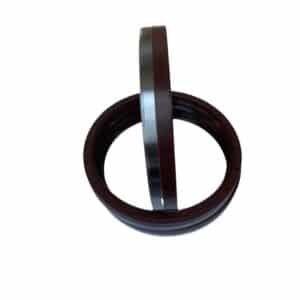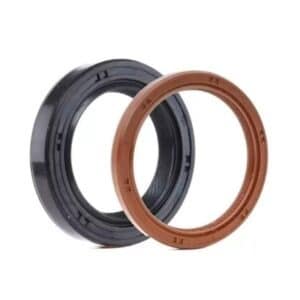Need sealing performance across high heat or aggressive chemicals? Choosing between Joints toriques en silicone et Joints toriques FKM can define your system’s reliability.
FKM O-rings excel in chemical and oil resistance, while Silicone O-rings are best in extreme heat and cold.
Here’s how I compare them and choose the right fit every time.
What is the difference between Silicone and FKM O-Rings?
Silicone is flexible and food-safe; FKM is robust and chemical-resistant.
| Propriété | Joint torique en silicone | Joint torique FKM |
|---|---|---|
| Plage de température | -50°C à 250°C | -20°C à 200°C |
| Résistance chimique | UV, ozone, limited fluids | Fuels, oils, solvents |
| Application | Food, medical, low-stress | Fuel, automotive, dynamic |
| Coût | Inférieur | Plus haut |
Silicone O-Rings Details | Explore FKM Options
Which O-Ring performs better under temperature extremes?
If you’re sealing in extreme cold or static high heat, go for silicone. For high-temp chemicals, choose FKM.
| Matériel | Lowest Temp | Highest Temp (Typical) |
|---|---|---|
| Silicone | -50°C | 250°C (300°C additives) |
| FKM | -20°C | 200°C (up to 300°C) |
FKM for high-heat chemical sealing
When should I use Silicone or FKM O-Rings?
Use Silicone O-Rings in:
- Food-grade or sterile systems
- Cold storage
- Low-pressure static sealing
Use FKM O-Rings in:
- Automotive fuel lines
- Systèmes hydrauliques
- Oil, chemical, and acid environments
Compare EPDM vs FKM for chemical sealing
Which O-Ring lasts longer and offers better ROI?
| Métrique | Joints toriques en silicone | Joints toriques FKM |
|---|---|---|
| Coût | Lower upfront | Higher upfront |
| Durée de vie | Modéré | Longue durée |
| Cycle de maintenance | Frequent | Minimal |
Silicone is great for short-term or clean use. FKM pays off in aggressive systems.
What do users say about Silicone vs FKM O-Rings?
- “Silicone was perfect for our autoclave seals.” – Food OEM
- “FKM cut our chemical leakage incidents by half.” – Oil refinery manager
Utilisez notre Outil de fabrication de joints toriques for custom needs.
How do I choose between Silicone and FKM O-Rings?
Follow this decision path:
- Exposure to oil/fuel? → Use FKM
- High heat, no fluids? → Use Silicone
- Dynamic movement? → Use FKM
- FDA-grade or static? → Use Silicone
📞 Still unsure? Contact us at [email protected]
Conclusion
Choose Silicone O-Rings for heat, cold, or food-grade sealing. Use FKM when oil, fuel, or chemicals are involved.
Request custom O-Rings today
📩 Courriel : [email protected]
📞 WhatsApp : +86 17622979498
Related post
- Guide des joints toriques en silicone
- FKM O-Ring Applications
- FKM vs NBR Comparison
- How O-Rings Work


